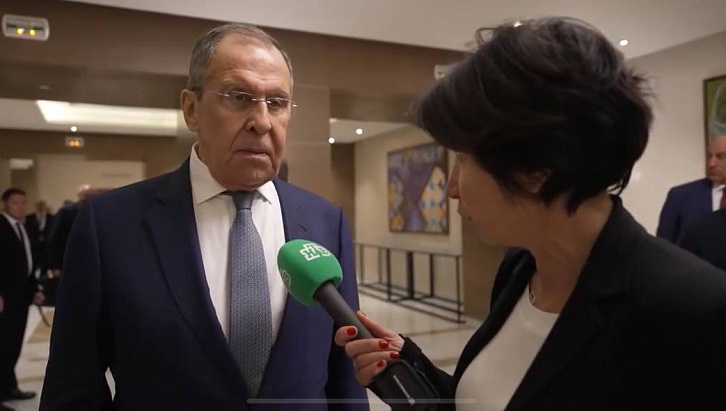Foreign Minister Sergey Lavrov answers questions from the NTV Itogi Nedeli programme, December 24, 2023
Question: Here is a philosophical question: Yesterday, you spoke about justice, a just solution to the crisis, a just multipolar world order, etc. Now the Global South is closely watching us. What kind of justice can we offer them? How do we make it clear to them?
Sergey Lavrov: I think that any normal person, including politicians, immediately understands what injustice is when they see it. It is clear to them when issues are resolved fairly, based on a balance of interests and the key principle of the UN Charter, which emphasises the need to respect the sovereign equality of all states, big and small. Unfortunately, since the creation of the United Nations, the West, especially the United States, has failed to comply with this key principle of sovereign equality.
The Arab world is not just watching us closely; they are also closely cooperating with us. The atmosphere in Marrakesh during the meeting of the Russian-Arab Cooperation Forum, as well as my talks with the Minister of Foreign Affairs, Migration and Tunisians Abroad Nabil Ammar and the meeting with the President of the Republic of Tunisia Kais Saied, demonstrated that this is not mere observation. There is a strong desire for active cooperation, both bilateral, in terms of developing the economy and mutual investments, and in the international arena. We aim to coordinate not just on specific issues, but on fundamental matters concerning the future world order.
In this context, justice means equal rights for all states and entities established in different regions. This includes the Arab League, the Gulf Cooperation Council, the African Union, CELAC, as well as numerous subregional institutions in Africa and Latin America. In Eurasia, we have the EAEU, the SCO and ASEAN. These organisations have established close contacts, including through the Belt and Road project.
Integration processes are a natural part of life. Unlike certain plans proposed by Western countries, we do not intend to construct artificial schemes. Instead, we seek to allow these objective tendencies to interact with each other, as there are many overlapping areas where integration naturally develops. Through fair division of labour and mutual benefit for all participants, we will gradually move towards a multipolar world.
Question: Why didn't you mention BRICS?
Sergey Lavrov: I didn't mention BRICS because it is self-evident. I listed the organisations that are emerging at the regional level. BRICS is not an organisation but an association. I don't think there is any interest in turning it into a formal organisation with a secretariat, at least not at this stage and for the foreseeable future. BRICS is a symbol. It represents the shared desire of a majority of countries in the world to develop their initiatives together, taking into account each other's interests on an equal basis. It serves as a future umbrella for all subregional and regional processes. Some countries in Eurasia, Africa, Latin America and the Arab world are already part of this association. This is the future.
In the West, there are no organisations that have fair rules in terms of equality and genuine consensus. Not the kind we saw in the European Union, when Hungarian Prime Minister Orban was asked to leave the room and go have a coffee when they made some decisions concerning Ukraine. NATO enforces discipline through force. Perhaps one day, the West will realise that these trends are unstoppable and that the desire for real justice is the driving force behind the growing self-awareness of the World Majority, which includes the Global South and the Global East. We are part of this process.


